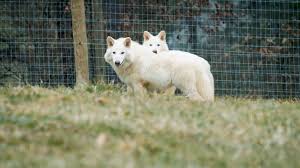Dire efforts: On de-extinction and conservation.
The conservation argument for resurrecting dire wolves is not credible.
Colossal Biosciences is an American company with an unusual marketing line: combining genomics with conservation — not in its traditional form, but through de-extinction, which is resurrecting species extinct for thousands of years. Leading this project is Harvard geneticist George Church, a prominent promoter of the company, who aims to bring back the woolly mammoth, a distant ancestor of the elephant. The stated logic is to combat global warming. During the Pleistocene Ice Ages, the mammoth roamed lush grasslands across the tundra. Until its extinction around 5,000 years ago, the Arctic tundra also supported large populations of bison, wolves, cave lions, and giant deer. As the climate warmed, these species disappeared, and the grasslands gave way to shrubbery and sheets of snow. As temperatures rise, permafrost begins to disappear, resulting in high emissions of methane, a more potent greenhouse gas than carbon dioxide. To prevent this, some scientists at a Siberian park have been transporting large animals that are resistant to cold to see if their foraging can restore the grasslands. Grass absorbs less heat than the tall trees in a shrub forest — the dominant species — and therefore decelerates warming, but it cannot stop warming.
The woolly mammoth, though extinct, is seen as a potent weapon in this climate plan. Scientists at Colossal have extracted fragments of its DNA from fossils and reconstructed its genome. By comparing it to that of the modern elephant, they have edited specific genes to recreate mammoth-like traits, with the goal of eventually incubating a hybrid embryo in an elephant’s womb. Scientists have also experimented with the dire wolf, an extinct relative of the gray wolf, and birthed three snow-white wolves. However, this claim has yet to pass rigorous peer review. Critics point out that only 20 genes were edited, and what has been created is, in essence, a “strange-looking gray wolf”. Despite such criticisms, the technological achievement is a testament to the ability to engineer precision edits to the genome. The work of Chinese scientist He Jiankui, who claimed to have produced gene-edited human babies, remains controversial. Colossal may be credited for its genomics work, but the claim that it is reviving species for conservation is not credible. Thousands of living species are vanishing due to habitat loss and human encroachment. Spending millions of dollars on speculative projects, whose benefits, if there are any, will fructify only over centuries, takes away resources from immediate conservation efforts. The scientific community must lay down strict guidelines on the use of gene-editing technology in applications other than health.
